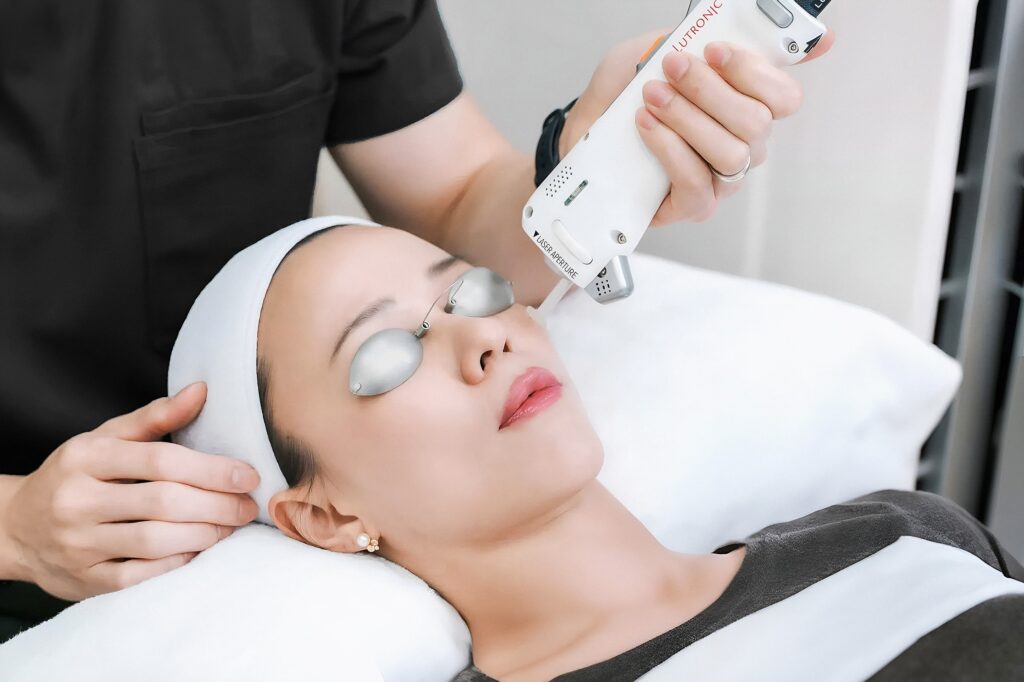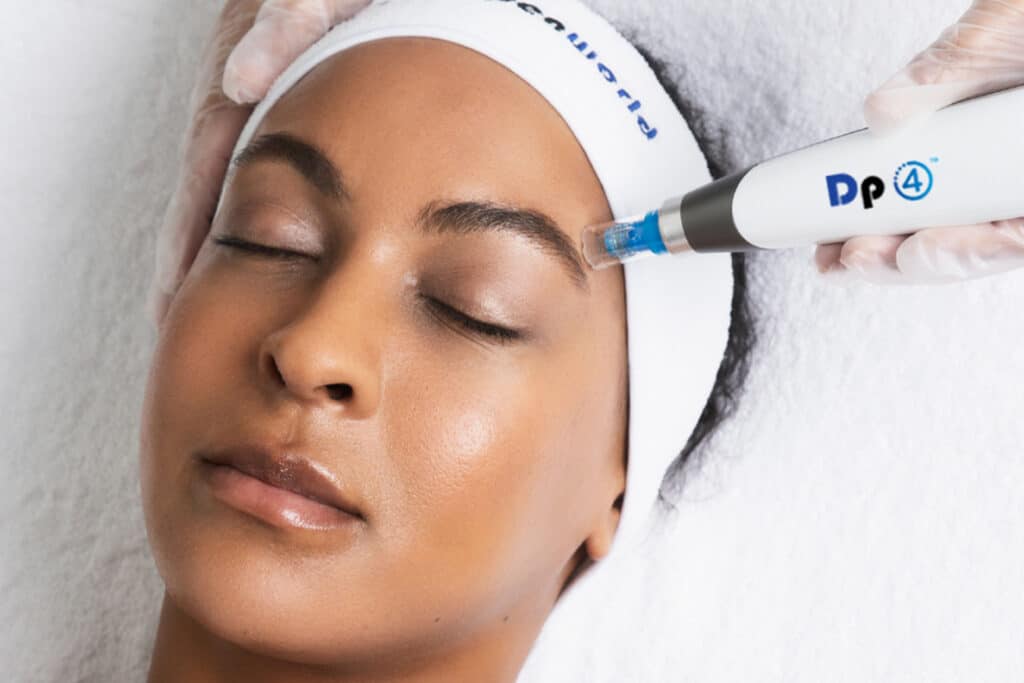We support clients struggling with melasma, a common and often stubborn form of hyperpigmentation. Melasma typically causes brown or grayish patches to appear on the face, particularly on the cheeks, forehead, and upper lip. While not harmful, melasma can be challenging to manage without professional guidance and long-term care.
What Is Melasma?
Melasma is a form of pigmentation triggered by hormonal changes, sun exposure, and sometimes heat. It is more common in women, particularly during pregnancy, while taking oral contraceptives, or undergoing hormone therapy. It often appears symmetrically across the face and is more prevalent in individuals with darker skin tones.
Common Causes
- Hormonal fluctuations – Pregnancy, oral contraceptives, and menopause
- UV exposure – Sunlight is a major trigger and can worsen existing melasma
- Heat exposure – High temperatures and even hot yoga can exacerbate melasma
- Genetics – Family history of melasma increases risk
Prevention Tips
- Use broad-spectrum SPF 30 or higher daily, even on cloudy days
- Reapply sunscreen when outdoors or after sweating
- Wear wide-brimmed hats and avoid prolonged sun or heat exposure
- Avoid skin irritants and over-exfoliation
- Stick to a consistent medical-grade skincare routine to help maintain skin clarity
How to Treat Melasma
At West Kootenay Skin Clinic, we offer a range of non-invasive treatments designed to reduce pigmentation and improve skin clarity over time:
Our Clarity II laser uses dual wavelengths to safely target melasma and pigmentation. The 755 nm Alexandrite treats lighter skin types (Fitzpatrick I–III), while the 1064 nm Nd:YAG is safe for darker skin types (Fitzpatrick IV–VI). By customizing settings to your skin, we gently fade dark patches, even out skin tone, and improve overall clarity—with minimal downtime and expert care.
Improves skin tone and texture and reduces pigmentation when used with or without PRP.
Boosts collagen production and accelerates healing, enhancing microneedling results.
Medical-grade chemical peels such as The Perfect Peel and AlumierMD peels help reduce melasma and even out skin tone.
At-home regimens with AlumierMD, Pro-Derm, Om Organics, and EltaMD support your in-clinic treatments and help maintain long-term results.
Prescription Topical Medications
In certain cases, prescription-strength creams containing hydroquinone, tretinoin, or other skin-lightening agents may be recommended to help fade stubborn pigmentation and prevent recurrence.
Is Melasma Treatment Right for You?
If you’re struggling with stubborn pigmentation or uneven skin tone due to melasma, we can help guide you toward effective solutions that suit your skin and lifestyle.
Book a Consultation
Schedule your consultation today to learn how we can support your journey toward clearer, more radiant skin.
Physician Consultation Available
With a referral from your primary care provider, our physicians can provide a comprehensive consultation for melasma, including individualized medical treatment plans.






